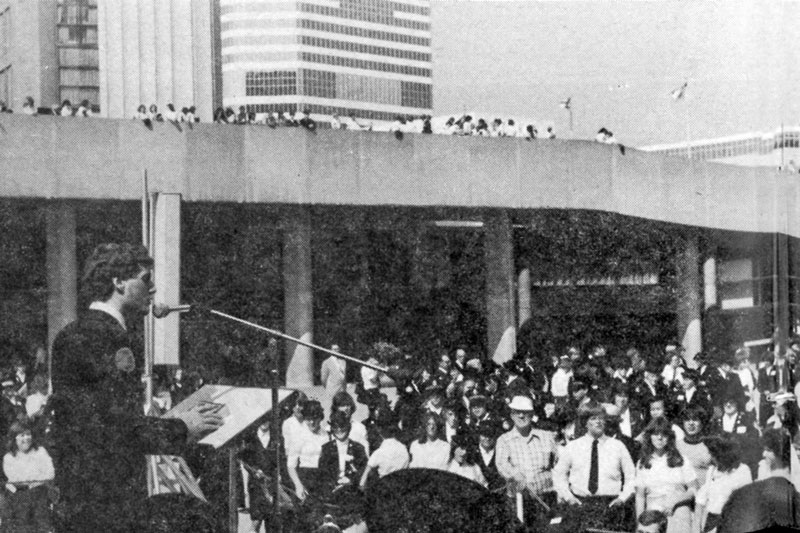At my corps in St. Thomas, Ont., the central conversation, a matter of urgent importance, was leading people to faith in Christ. The original Left Behind movie was a Sunday night feature. The beating of a drum still attracted a crowd to open-air meetings. Billboards plastered with the slogan, “Come as you are, worship in your car,” drew people to parking lot services.
What were the results? Did more people come to faith? Was the response more robust than today? A comparative study between that decade and this one would be interesting.
We acknowledge the undefinable, infinite attributes of our God and the resources he makes available. There is no limit to his love or his power to work. He makes the impossible possible, according to his purpose. After 152 years, The Salvation Army is still called to preach and live out the message of the gospel.
Do we restrict and confine God? Do we have faith to believe? Are we still an Army that is prepared to launch out into the deep, to be released to be innovative and creative in response to the urgency of reaching the lost for Christ? God still calls The Salvation Army to be a prophetic voice in an increasingly lost and wayward world, with Scripture in one hand, obedience in the other—living and being the Army God intended.
Sometimes, it feels as if we have missional paralysis. So much of what we do has become focused on bringing people to where we are, instead of going to where they are. We started on the streets—can we not return to them? Are we less brave, less bold, less committed? William Booth himself warned, “We must wake ourselves up! Or somebody else will take our place, and bear our cross, and thereby rob us of our crown.”
At the spring Territorial Leaders’ Conference, our focus was the territorial strategic priority “the gospel and transformation.” We were challenged to think about our own personal engagement. What am I doing as a soldier to share the gospel, lead people to Christ and nurture them in their faith? Have I allowed my leadership role to diminish my responsibility to live out my faith at street level? Who is holding me accountable for kingdom outcomes? To be honest, I am personally uncomfortable with the answer to the question, How many souls have you led to the Lord in recent years?
When I look at recent statistical data, I can’t help but wonder if we have lost our sense of mission urgency, of fight. It is just one indicator, but in 2016 our total number of recorded first-time seekers was 2,920. I am not satisfied with that number, are you? Now, perhaps our recording is not perfect, but this number calls for reflection. With an annual operating budget of $700 million, 311 corps, a serious investment in camping ministry, many community and family services and social services units, one should expect that our first-time seeker count would be much higher.
The primary mandate of the territorial commander, as stated in our orders and regulations, is “to accomplish within the territory the Army’s mission of transforming lives, caring for people and reforming society, through God in Christ.” The territorial commander cannot fulfil that mandate alone. It becomes the delegated responsibility of every officer, soldier and adherent. If men and women are not being attracted to The Salvation Army, are not found at the mercy seat, are not called into a personal relationship with Christ, are not discipled into soldiership, how do we replenish and grow? From where will our officers come? How will we sustain the battle and win the world for Christ?
To be sure, we do have amazing examples of ministry renewal and community-based initiatives that are mobilizing us in wonderful ways to engage and reach the lost right across the territory. Let’s just make sure that the gospel and transformation is our battle cry. As Scripture encourages us, “never lose your sense of urgency” (2 Timothy 4:2 Phillips).
Colonel Lee Graves is the chief secretary of the Canada and Bermuda Territory.










Leave a Comment